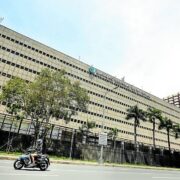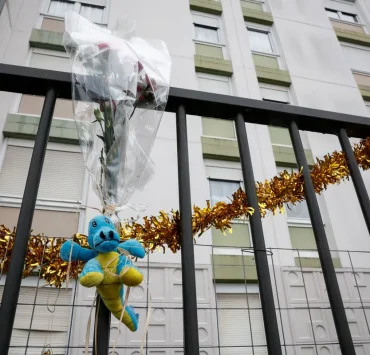West Philippine Sea: Is Asean really ‘useless’?

China-Philippines relations are at a crossroads,” warned China’s top diplomat Wang Yi during a seemingly testy exchange with his Filipino counterpart, Enrique Manalo. “Faced with the choice of where to go, the Philippines must act with caution,” he added, squarely blaming China’s far smaller rival in the South China Sea for rising tensions in the disputed waters.
According to the Chinese diplomat, the “root cause” of the ongoing crisis is “that the Philippines has changed its longstanding policy stance [and] reneged on its own commitments, [and] continued to provoke and stir trouble at sea …”
Curiously, Wang neither mentioned the United Nations Convention on the Law of the Sea nor did he acknowledge repeated Chinese water-cannoning of Filipino resupply vessels en route to the Second Thomas Shoal. But what the Chinese diplomat really meant was that they were unhappy to see the Marcos administration not turning out as slavish, subservient, and self-defeating as former mayor-president Rodrigo Duterte. By all accounts, the current president has—as I correctly predicted in a piece or two more than a year ago—turned out more like his father (Marcos Sr.) than “Tatay Digong” (Rodrigo Duterte) on matters of foreign policy. As a former princeling, President Marcos accompanied his parents during highly consequential foreign trips, most notably facilitating the normalization of bilateral ties with Maoist China in the mid-1970s. He also observed how his father fortified our position in the West Philippine Sea by building the first modern airstrip in the area.
While Duterte was an obvious geopolitical amateur—a longtime provincial mayor easily falling for China’s “pledge trap”—the Marcoses are “OG”! Following a largely fruitless state visit to Beijing earlier this year, Mr. Marcos embraced expanded security cooperation with the United States and other traditional partners. At the heart of Mr. Marcos’ strategy is strengthening the Philippines’ negotiating position vis-à-vis China. And this, dear readers, brings us to the topic of the Association of Southeast Asian Nations (Asean).
Aside from the Dutertes—who seem to never run out of suspect opinions on a whole range of policy issues—Asean was the other major actor conspicuously silent on China’s brazen bullying. The regional body is often dismissed as a “talk shop,” but Asean didn’t even “talk” or express a single ounce of solidarity with one of its founding members.
Apologists tend to downplay the issue by stating the “Asian” nature of Asean, or shifting the goalpost by maintaining that the regional organization doesn’t interfere in geopolitical matters. But any real scholar of Asean knows that the regional body proactively intervened in a whole host of conflicts, most notably during the Indochina Wars (opposing Vietnam’s occupation of Cambodia), supported East Timor’s transition into an independent state, and nudged post-war Cambodia toward pluralistic politics as a precondition for membership.
Today’s Asean, however, is a shell of its former glory. Not only does it lack any decisive leader as in the past (think of Mahathir Mohamad or Lee Kuan Yew), but it has also self-sabotaged by adopting a de facto unanimity-based decision-making modality on sensitive issues. As the veteran Singaporean diplomat Barry Desker correctly argues, this allows “China [to] exert its influence on Asean members to prevent any decisions” which undermine the Asian superpower’s interests. All China has to do is lean on a single dependent Asean nation to sabotage the whole organization.
No wonder then, the decades-long negotiations over a Code of Conduct in the South China Sea have turned out as a self-defeating sham, namely providing a diplomatic cover for China’s transformation of facts on the ground on a daily basis.
But while “Asean 10” is just north of useless when it comes to the West Philippine Sea disputes, the reality is that the Marcos administration will have to bilaterally and mini-laterally engage key Asean states such as Singapore, Indonesia, Malaysia, and Vietnam to build a modicum of a “united front” against brazen bullying. We may never get 100 percent support from our Southeast Asian neighbors, but seeking their diplomatic support should be an essential component of Mr. Marcos’ “new paradigm” in protecting our West Philippine Sea sovereign rights.
—————- rheydarian@inquirer.com.ph

















